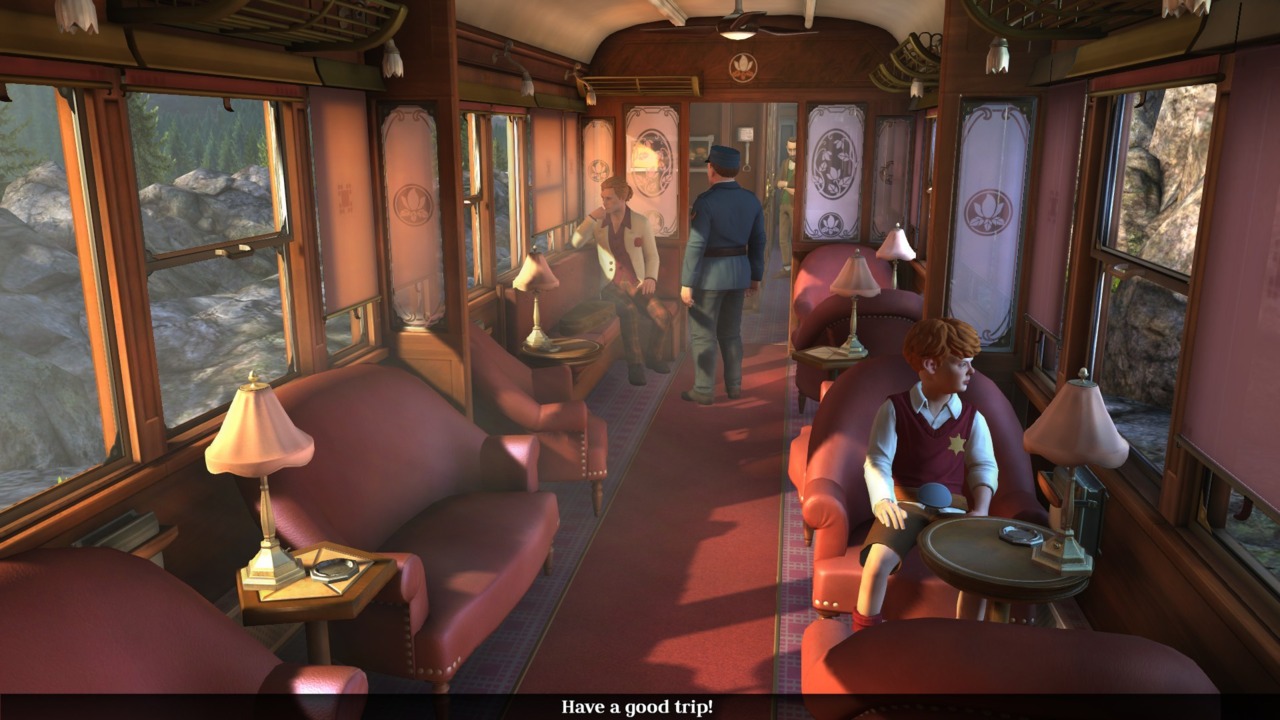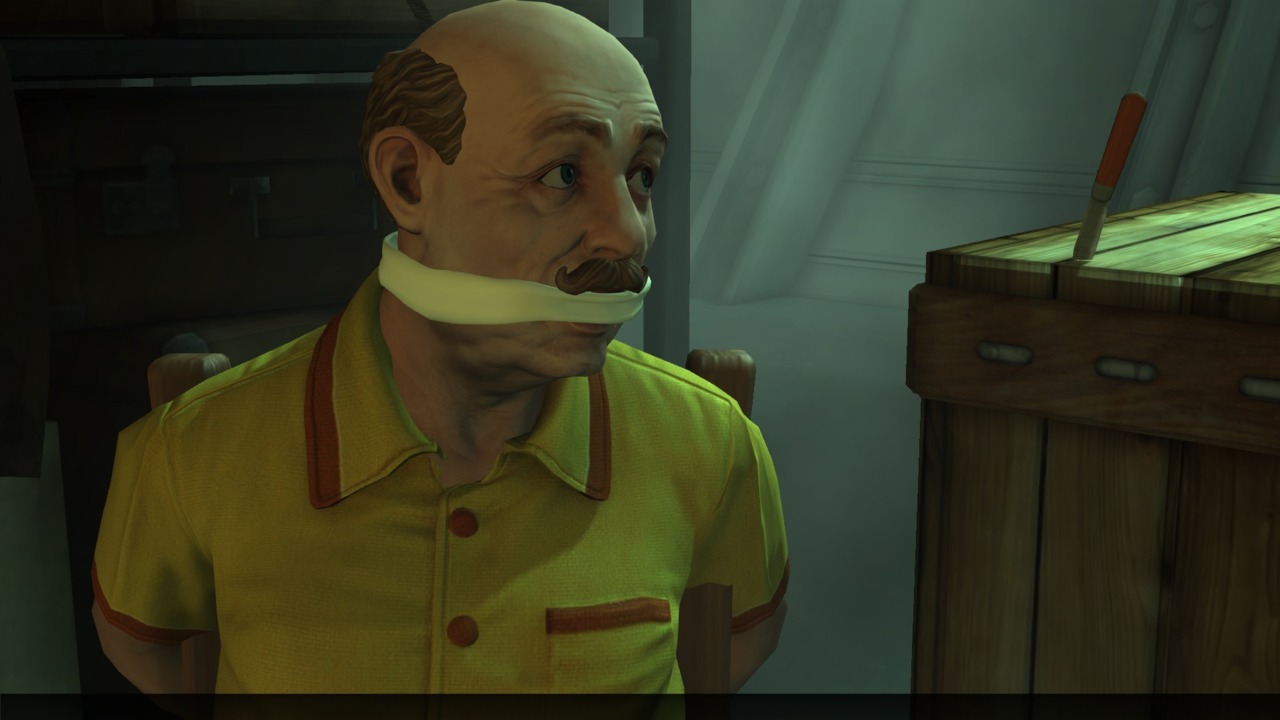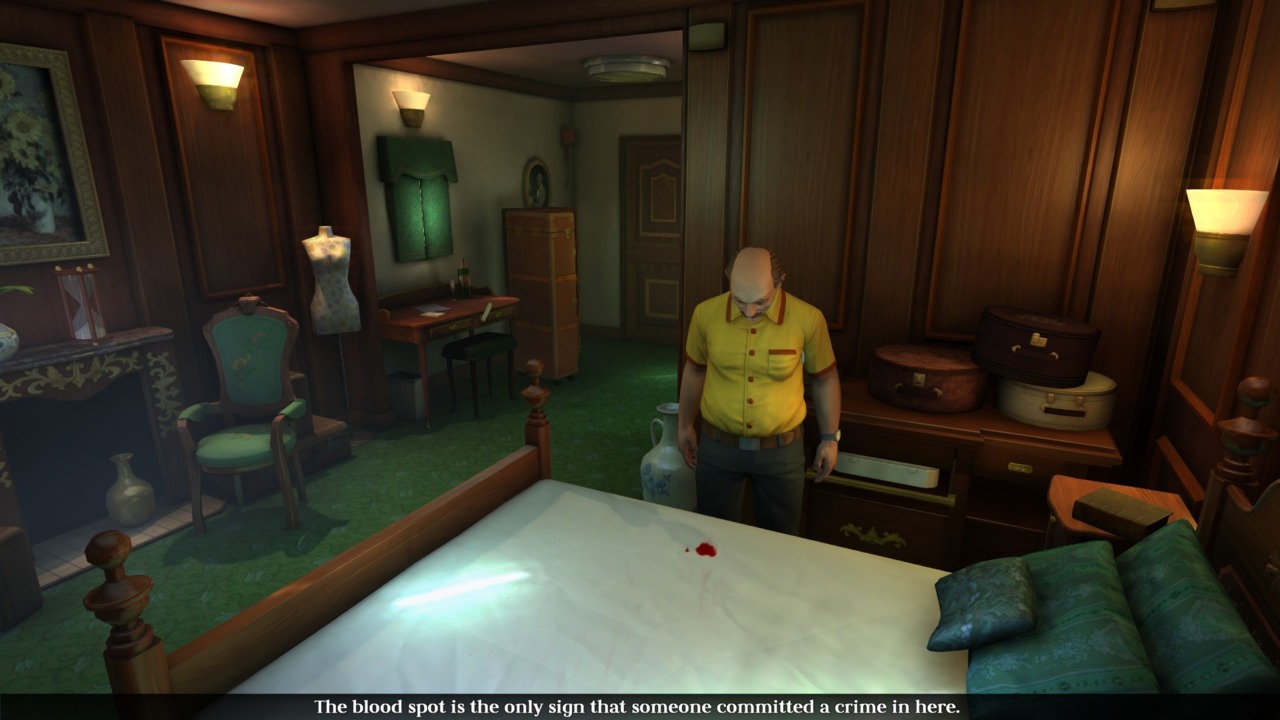What makes for a compelling mystery? Is it a perplexing crime that pulls you in immediately and leaves you eager to discover who did it and how? Is it a fascinating central character whose investigative methods are a pleasure to watch? Perhaps it's a sense of urgency as the investigator races against time to prevent the criminal from getting away with any more nefarious deeds? Whatever it is, you won't find it in The Raven: Legacy of a Master Thief. This point-and-click adventure has many of the trappings of a good old-fashioned mystery, but fails to re-create the irresistible allure of a captivating whodunit.

Wearing its Agatha Christie inspirations on its sleeve, The Raven begins with you, as Swiss constable Anton Jakob Zellner, aboard the Orient Express. A priceless jewel, one of the two Eyes of the Sphinx, has just been stolen in a daring museum robbery. Has the legendary thief the Raven (once believed to be dead) returned, or is this the work of an imitator? It's a setup with considerable potential, but unfortunately, rather than harnessing that potential and pulling you into the story right away, the plot squanders its momentum as you must instead deal with mundane problems like helping a train passenger get into his locked cabin.
The process of solving this and most of the other problems you encounter during The Raven is so straightforward that to refer to those problems as puzzles would be generous. The hardest part is typically just finding the items you might need. Objects you can examine or interact with in the environment aren't typically highlighted in any way. You can employ the tried-and-true (and tedious) method of moving your cursor over anything and everything to see what you can interact with, or you can spend a small amount of "detective points" to briefly highlight notable objects, though doing so diminishes your final score. Also making matters frustrating is that you often need to examine something more than once before Zellner notices anything important about it, so you get in the habit of examining everything you can until either Zellner starts repeating himself or the option to examine or interact with an object goes away.
Once you've got the item or items you need to overcome a particular obstacle, it's usually obvious what you need to do. Nothing you do involves any deductive reasoning or anything resembling actual detective work. There's nothing inherently wrong with a point-and-click adventure that doesn't challenge you with taxing puzzles, and some games in the genre with compelling stories benefit from puzzles that don't bog down the story's pacing. But in the case of The Raven, the story is too plodding to support the game on its own. Zellner is a bland protagonist, lacking the preternatural deductive reasoning of Sherlock Holmes, the endearing persistence of Columbo, the believably complex, flawed humanity of Kurt Wallander, or any real quirks or characteristics of his own that might have made him an interesting figure through whom to experience this mystery.

His fellow passengers are a bit more memorable. There's a haughty baroness, a suspicious violinist, and an Agatha Christie-esque mystery novelist among them, but interacting with these characters is typically a bore. Zellner's dialogue is delivered in a stilted, unnatural fashion that makes listening to conversations unenjoyable. You can just click through the dialogue instead, but either way, most conversations fall flat. They dryly convey information about the people and situations Zellner must deal with, but they have no spark of humor or tension. They move the plot forward, and that's about it.
That plot moves forward in fits and starts, and each time it seems like it's about to shift into high gear, it slows down again. It eventually moves from the elegant train cars of the Orient Express to the elegant decks and cabins of a luxury steamship, but after a murder takes place, you still spend all your time just going through the same motions. You engage in a dry conversation with one character who tells you to go get something from another character, so you go talk to that other character. You scour environments until you find the things that you need to accomplish your basic tasks. These mechanics are the same as those found in so many point-and-click adventure games, but they've never been what make or break such games. It comes down to things like the personalities of the characters, the excitement of the story, and the cleverness of the puzzles, and in all of these areas, The Raven flounders.

About all you can say in The Raven's favor is that its locations have the flavor you might expect from a classy mystery in the Agatha Christie vein, and that it functions as you expect a point-and-click adventure game to function, except for the moments when it doesn't. Characters occasionally slide rather than walk into position, and in rare instances, Zellner might get stuck walking in place, forcing you to quit out of the game and restart. However, the game's real problem is simply that it's boring. Legacy of a Master Thief is just the first chapter in what will ultimately be a three-part story, so there's still hope for this to evolve into a gripping mystery that actually makes you feel like an active participant in deducing its solution, but it's off to an inauspicious start.